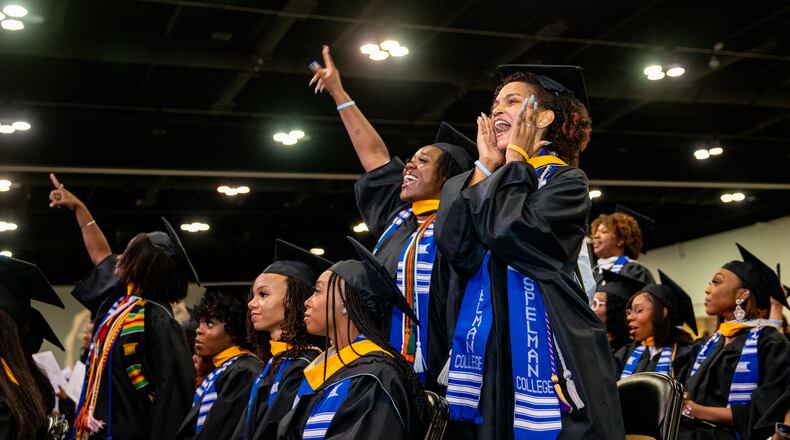In a guest column, Andrew Hsu, president of the College of Charleston, discusses polls showing Americans are losing confidence in higher education. He notes that one group remains confident in the value of college attendance, students themselves.
By Andrew Hsu
Judging by the news headlines, I know this has been a hard summer for all of us. Record heat. International conflicts. Continual discord in Washington politics. Humanitarian crises around the globe. Artificial intelligence becoming our future overlords. Suffice it to say, we have not had too many “good news” days under our belt in 2023. Excepting, of course, Barbenheimer.
As a university president, I was especially intrigued and made particularly anxious by a Gallup Poll this summer that talked about the waning reputation of higher education among the public. To summarize the survey, the percentage of Americans who have a “great deal” or “quite a lot” of confidence in colleges and universities fell to 36%. This was a drop from 57% in 2015 and 48% in 2018. That kind of dip, of course, is alarming.
Credit: Contributed
Credit: Contributed
However, higher education was not alone in this decline. All major societal institutions in America measured by Gallup continued to fall, in comparison to their 2021 and 2022 numbers. Those institutions include the presidency, Congress, the U.S. Supreme Court, the church or organized religion, banks, public schools, newspapers, the police, the military, among others.
Since the late 1970s, when Gallup started these “faith” polls, we have seen a drop in the average confidence in major U.S. institutions — the high-water mark of 48% being in 1979 (the first year of the poll) to an all-time low of 26% in 2023. In higher education, we like to use the cliché around momentum that a rising tide lifts all boats. Well, clearly, the inverse is true as well, and we, as a country, appear to be in a receding tide of faith in public institutions.
I received my formal training as an engineer, so I have a tendency to put a lot of stock in numbers and data. I like to look for trends and try to extrapolate greater truths from reports like these. In my experience, facts beat intuition.
But that is not always realistic or even accurate. During my graduate work and in private industry, I studied and researched turbulence and its effects on plane engines and flight. My goal was to predict turbulence and thus, either to better utilize its effects or mitigate them — something no other scientist, including Albert Einstein, had done successfully. Spoiler alert: I wasn’t able to do it completely accurately, either. The problem itself defies accurate mathematical description when it comes to turbulence to create an accurate predictive model.
In looking at these poll numbers, I feel a bit like I did in trying to figure out turbulence. Why? One poll does not reflect where we are as a country or as an industry. Any scholar could look at the data and argue sample size, the nature of leading questions or rating level inconsistencies in order to poke holes in the findings. Of course, that criticism might naturally be coming from a place of biased self-interest as well.
I looked at another Gallup Poll from earlier that same month that told a different and much rosier story regarding our higher education system: 71% of currently enrolled undergraduate students strongly agree or agree that the degree they are receiving is worth the cost and 75% strongly agree or agree that their institution is preparing them well for life outside of college.
Overall, approximately three-fourths of students, both currently enrolled and prospective students, report that a college education is either more important than it was 20 years ago or equally as important. For someone in the industry, that reads as good news.
So, it seems two truths exist simultaneously. Overall faith can be down, on average, while the younger generation can have a very different perception and understanding. I wish optimism was not simply the purview of youth, and it doesn’t have to be so. In my own experience and what I have seen countless times at universities across the country, higher education is still the greatest tool for social mobility, of improving one’s income and wealth. Education and one’s willingness to learn new skills have always been the drivers for innovation and resilience.
With so much disruption rippling across all aspects of modern life, education, both on an individual and collective level, is perhaps our greatest defense against future calamity and misfortune. The answers to our questions always lie just ahead, and we can not and we must not stop grasping for them.
Before news fatigue fully sets in, I encourage you to not lose hope and not let recent polls cloud all judgment. Rather, use it as another data point, one among many, and let’s work together to restore our faith in the things that bind us together — like our colleges and universities. That’s how we change the tide.
About the Author
The Latest
Featured




